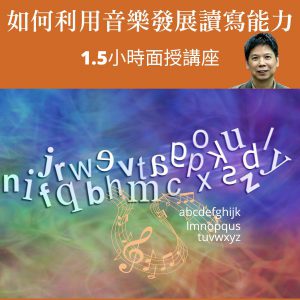Module 1- Music Therapy for children with special needs
This was a very clear and precise introduction to music therapy. Not only concepts of Behavioral Music Therapy and use of music in different areas of development were introduced in a very interesting manner, different important techniques such as FITB, MIT, patschen, Pang’s body signs for solfege and vocal training etc. were also presented clearly. It was interesting to watch some video clips to have an idea of what music therapy was like.
Module 2- Guitar
Although it was not my first time to learn guitar (I used to play classical guitar), I had not played it for quite a while and this quick start course refreshed my memory and the teaching of different strumming techniques was very practical. I particularly liked the part we learned how to play blues and improvise using the pentatonic scale.
Module 3- Djembe
This module was really fun and I enjoyed it very much. The improvisation practices before each lesson were good to practise musicianship skills. Having different groups playing different rhythms at the same time was great fun.
Module 4- Practicum course
This module was very practical because it did not only introduce different behavioral techniques, but it also gave all the students chances to practise using those techniques in class. The use of Q-chord and repertoire of children’s songs in the handbook were also very useful.
Module 5- Music Activity Repertoire
This was another very practical module to give us an idea of the music activities and teaching procedures we could use in therapy sessions. It was good to have opportunities to think of music activities ourselves and to practise using them in class. The assignments to write solfege to vocabularies, lyrics to simple melodies and a a30-minute session plan were all essential for practicing my skills.
Module 6- Case Analysis & Assessment
It was interesting and practical to know about available assessments for children with special needs. The concepts of pinpoint and consequate were significant when practicing music therapy. They were clearly presented and the assignments reinforced my learning. It was also beneficial to watch and analyze a case presented by Mr. Pang.
Module 7- Neurological Music Therapy
This was a very interesting module to learn more about different functions of different parts of the brain and different techniques used in neurologic music therapy. I was fascinated when I watched the video clips showing how patients suffering from stroke and Alzheimer’s disease perform in NMT sessions. I could see the power of music working for those undergoing rehabilitation.
Module 8- On-site Practicum
These were very practical and helpful sessions to apply what I learnt in the course in giving therapy sessions to a child with special needs. Prior to each session, I had to think and plan carefully about the music activities, teaching procedures and behavioral techniques I had to use to suit the child’s level and needs. I had to think about the sequence of activities to make the flow of the session smoother. During the sessions, I had to react and respond quickly to the child’s behavior and executed different behavioral techniques to help the child succeed in the tasks.
Module 9- Feedback sessions
These sessions were very significant and helpful to help me improve my skills. It was also a good opportunity to watch what other classmates were doing and learned from their experiences.On the whole, I think the program was very practical and each part of it was important and essential for practicing music therapy. It would be even better if I had practicum sessions with another child to gain more experience in teaching children with different needs and dealing with different kinds of behavioral problems.I think my expectation of the program is fulfilled in many ways. It gave me what exactly I needed to know to use music in therapy . It has broadened my knowledge of the subject and increased my interest in pursuing to be a person to use music to help people with special needs.



